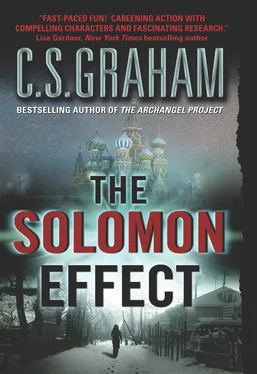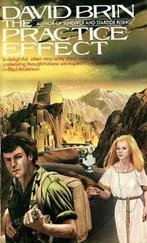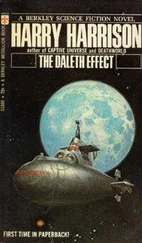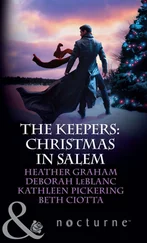Matt was silent for a moment. “You sure about this, Jax?”
“Sure? No. But it feels right.”
“The problem is, we ain’t got no verification.”
“I’m working on that.”
“Well, work fast, Jax. Halloween is barely twenty-four hours away.”
Jax clipped his phone back on his belt and stood staring out over the darkened sea. The last of the sunlight had faded from the sky, revealing a universe of brilliant stars. From the sidewalk tables of a nearby restaurant came the sound of soft laughter and voices, and the scent of fish sizzling in olive oil and garlic.
“What is it?” said October, watching him.
He glanced over at her. “You’re sure Farrah was telling you the truth?”
She didn’t even need to think about it. “Yes. That man is genuinely frightened by the possibility of this disease getting loose. I think that’s why he agreed to meet me.”
Jax said, “Did he tell you anything about himself?”
She shook her head. “Not really. Just that his family was originally from Gaza. Why? Do you know him?”
“Not personally, no. But I’ve heard of him. He’s been on our Terror Watch list for twenty-five years. He originally trained as a doctor in England, but came back here to work in the refugee camps.”
“A doctor? That man’s a doctor?”
“A pediatrician. He was living with his wife and three kids in Shatila back in 1982 when the Israelis first invaded Lebanon.”
“Why does that name sound so familiar?”
“We passed it this afternoon.”
“So what happened?”
“When the Israeli army reached Beirut, they completely surrounded both Sabra and Shatila. At that point, all the Palestinian fighters had been evacuated under a U.S. guarantee for the safety of the women and children they left behind.”
“Oh, no,” she whispered. “Don’t tell me…”
Jax nodded. “The Israelis refused to let anyone-man, woman, or child-leave the refugee camps. Instead, they sent in their allies, the Christian Phalangists.” Jax paused, and the silence filled with the relentless drone of the surf beside them. “Rape, murder, mutilation…You name it, it happened there. When night came, they lit up the sky with flares so the Phalangists could keep killing. By the time the Red Cross was finally let into the camps two days later, they found thousands of bodies, most of them women and children. No one knows exactly how many Palestinians died. A lot of the bodies were bulldozed into mass graves that have never been opened.”
“And Farrah’s family?”
“I heard he found his wife’s body, and one of his little girls. His son and the other daughter were never found.” Jax hesitated. “What was done to his wife was not pretty.”
“Where was Farrah when all this happened?”
“At a nearby hospital, taking care of a sick child.”
She was silent a moment. “It explains why Baklanov approached him, doesn’t it? Not only does he have a powerful grudge against the Israelis, but as a doctor, he understands diseases.”
Jax nodded. “It’s Farrah’s involvement in all this that makes me inclined to believe we really are dealing with a bioweapon. If Baklanov thought he had an atom bomb to sell, I think he’d have gone after a bigger buyer.”
She swung around to stare back at the towers of the city’s skyline rising up beside them and ablaze now with lights. “Farrah said both the Israelis and the U.S. have bioweapon programs aimed at isolating ethnic-specific diseases. Is that true?”
“I don’t know about the Israelis, but we certainly have one. We have had it, for years.”
He was aware of her studying him through dark, troubled eyes. “How many years?”
“I don’t know exactly. The bioweapon program itself goes back to the thirties. The Nazi experiments from World War II are the most notorious and well known, but they weren’t the only ones doing that kind of stuff. Everyone was into it. The Japanese had the biggest program. They actually used their bioweapons, in China.”
“You think that’s where the Germans were sending this stuff? To Japan? As part of Operation Ceasar?”
“They were sending the Japanese everything from jet planes and rockets to nuclear material. So I suppose it makes sense they’d ship them bioweapons, too.”
“But…would something like that still be viable? After sixty years?”
“I remember reading about some archaeologists who excavated the graves of the members of an early twentieth-century North Pole expedition. The explorers had died of the flu, and the archaeologists caught the virus from the bodies they dug up. So I’d say, yeah, it could still be viable.”
She blew out a long, shaky breath. “And Homeland Security doesn’t believe any of this.”
“Nope.” He met her gaze, and saw his own growing horror reflected in the stark, drawn features of her face.
She said, “We need to find out exactly what was on that U-boat. But how?”
He turned his back on the darkened sea. “I’ve been thinking. I know someone who might be able to help us. A guy by the name of Leon Ginsburg.”
“Who’s he?”
“He’s the father of Paul Ginsburg.”
“As in, Paul W. Ginsburg, former secretary of defense? How can he help us?”
“For one thing, he’s a doctor. And he was a prisoner at Dachau for three years.”
“Where does he live now?”
“Jaffa.”
“Jaffa? As in, Jaffa, Israel?”
“That’s right.”
“So, how do you know him?” she asked, as Jax flagged down a passing taxi.
“It’s a long story.”
Jaffa, Israel: Thursday 29 October 11:54 P.M. local time
Leon Ginsburg lived in an ancient stone house on a narrow, crooked street that dated back to the days when Jaffa was a prosperous Palestinian port surrounded by the vast orange groves that had made the city famous. The orange groves were mostly gone now, the few that were left disappearing fast beneath the runways of Ben-Gurion Airport and the creeping urbanization that had made Jaffa a virtual suburb of Tel Aviv.
It was nearly midnight by the time their taxi pulled up next to the house’s worn, shallow steps. A wrought-iron lamp set high on a coursed stone wall cast a pool of warm, golden light over a heavy, weathered door set into a corbelled arch. As Jax raised his fist to knock, the door swung inward to reveal a small, wizened man half lost in a bulky brown cardigan sweater, with thin white hair and wire-framed glasses he wore pushed down on the end of his bulbous nose.
“James! I wondered when you were going to get here.” His liver-spotted, bony hand closed on Jax’s sleeve, dragging him inside. “Come in, come in. You too, Miss Guinness.”
“James?” whispered Tobie, following Jax up the steps.
“That’s right. James.” Leon Ginsburg closed the old door behind them and gave a soft laugh. “It’s his real name. James Aiden Xavier Alexander.”
“There are only two people in the world who call me James,” said Jax, slinging an affectionate arm around the old man’s shoulders. “My mother, and Leon.”
The old man huffed another laugh and ushered them down a narrow corridor. “I was Jax’s grandfather for two years, you know. Did he tell you?”
The corridor erupted suddenly into a leafy courtyard surrounded by open arcades that loomed three stories above them. “No,” said Tobie. “He didn’t tell me.”
“My son Paul was Sophie’s third husband.” He frowned. “Or was it the fourth?”
“The third,” said Jax.
“I don’t know how you keep them straight.”
“I remember the earlier ones better.”
With a soft chuckle, Leon spread his arms wide, indicating a grouping of chairs nestled in amongst potted palms and ferns. “Please. Sit. You’ve been traveling for hours. You must be hungry. I’ve asked my wife to fix us something.” The sound of soft footsteps brought his head around. “Ah. Here she is.”
Читать дальше











